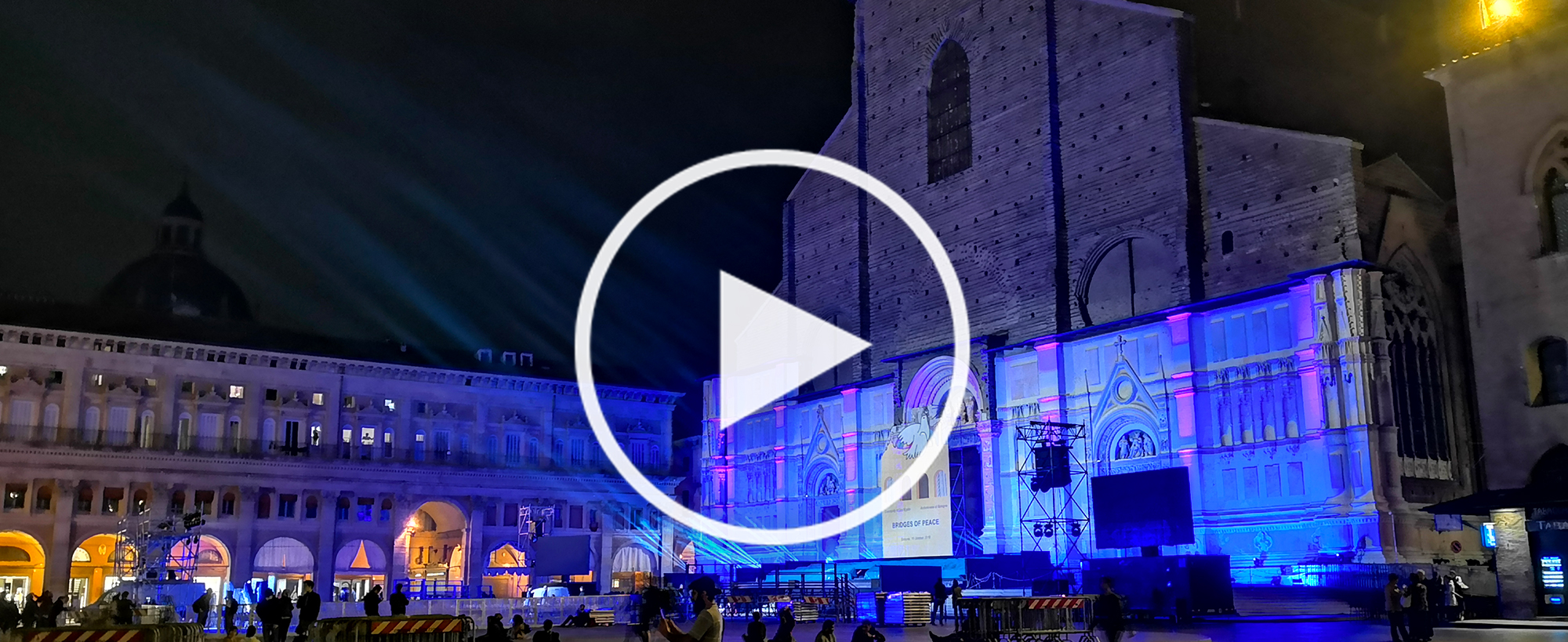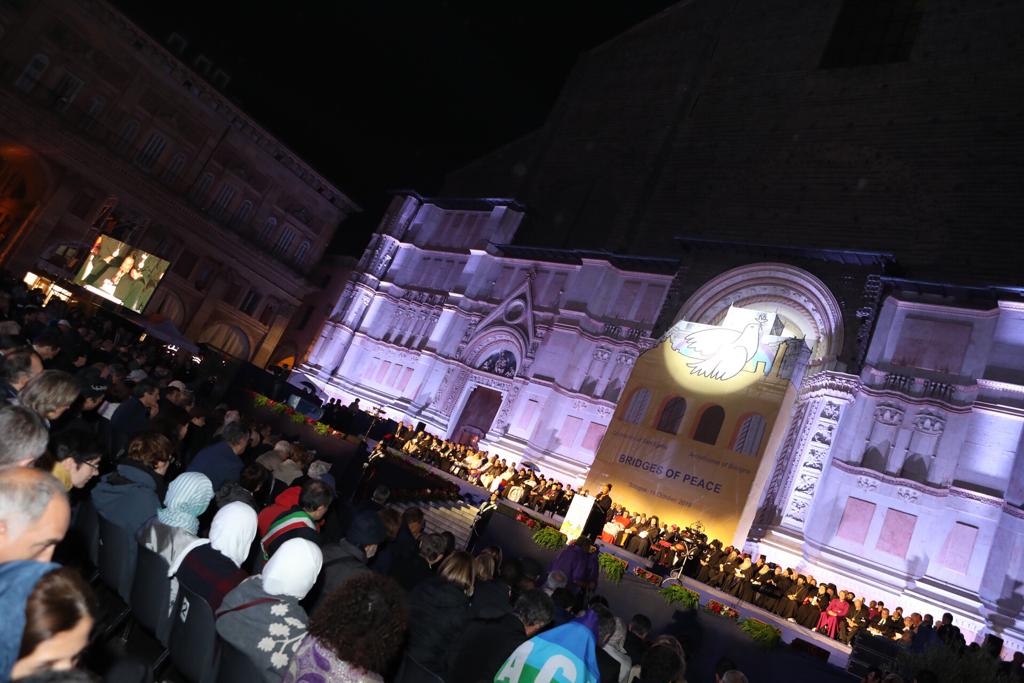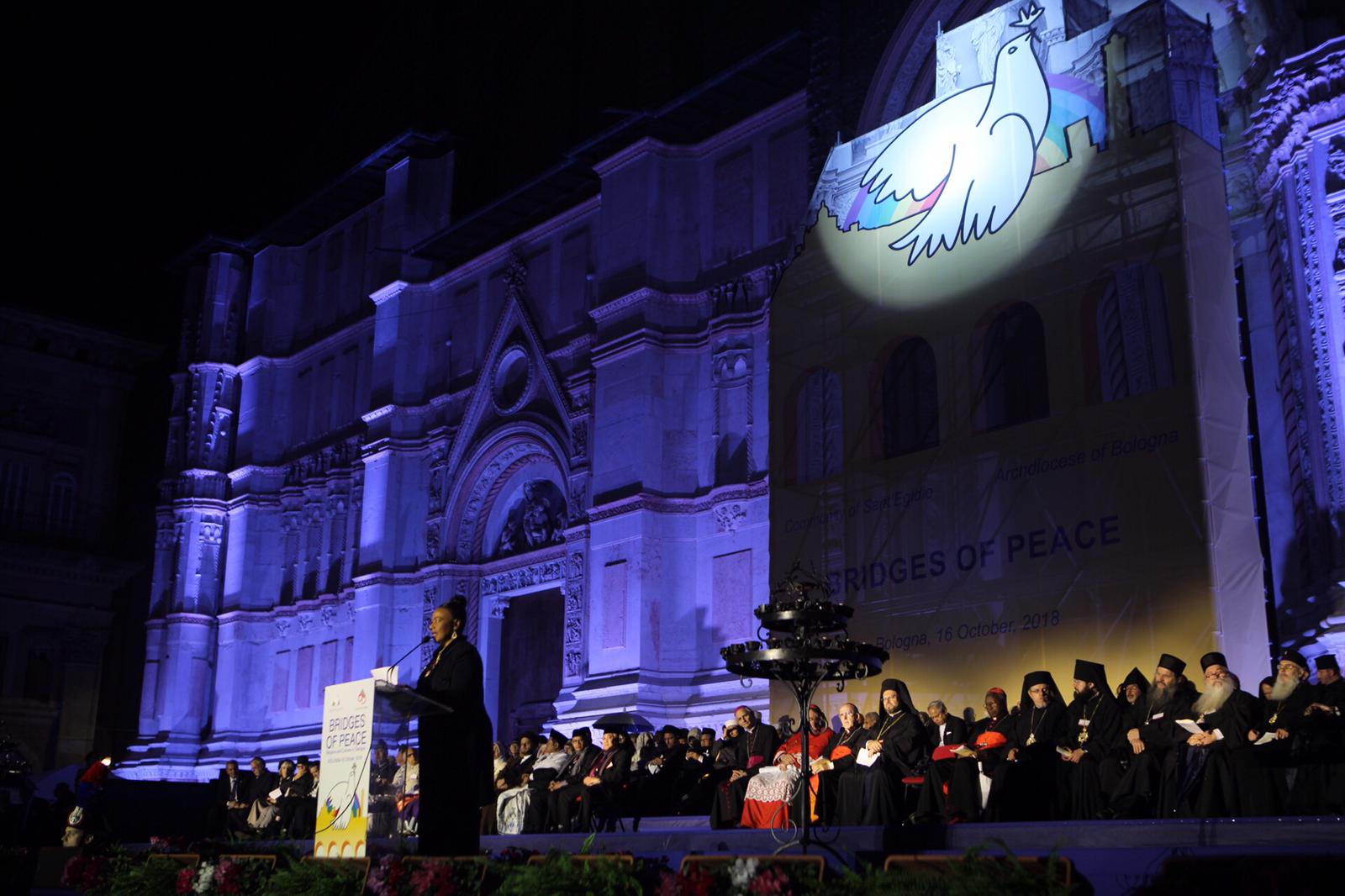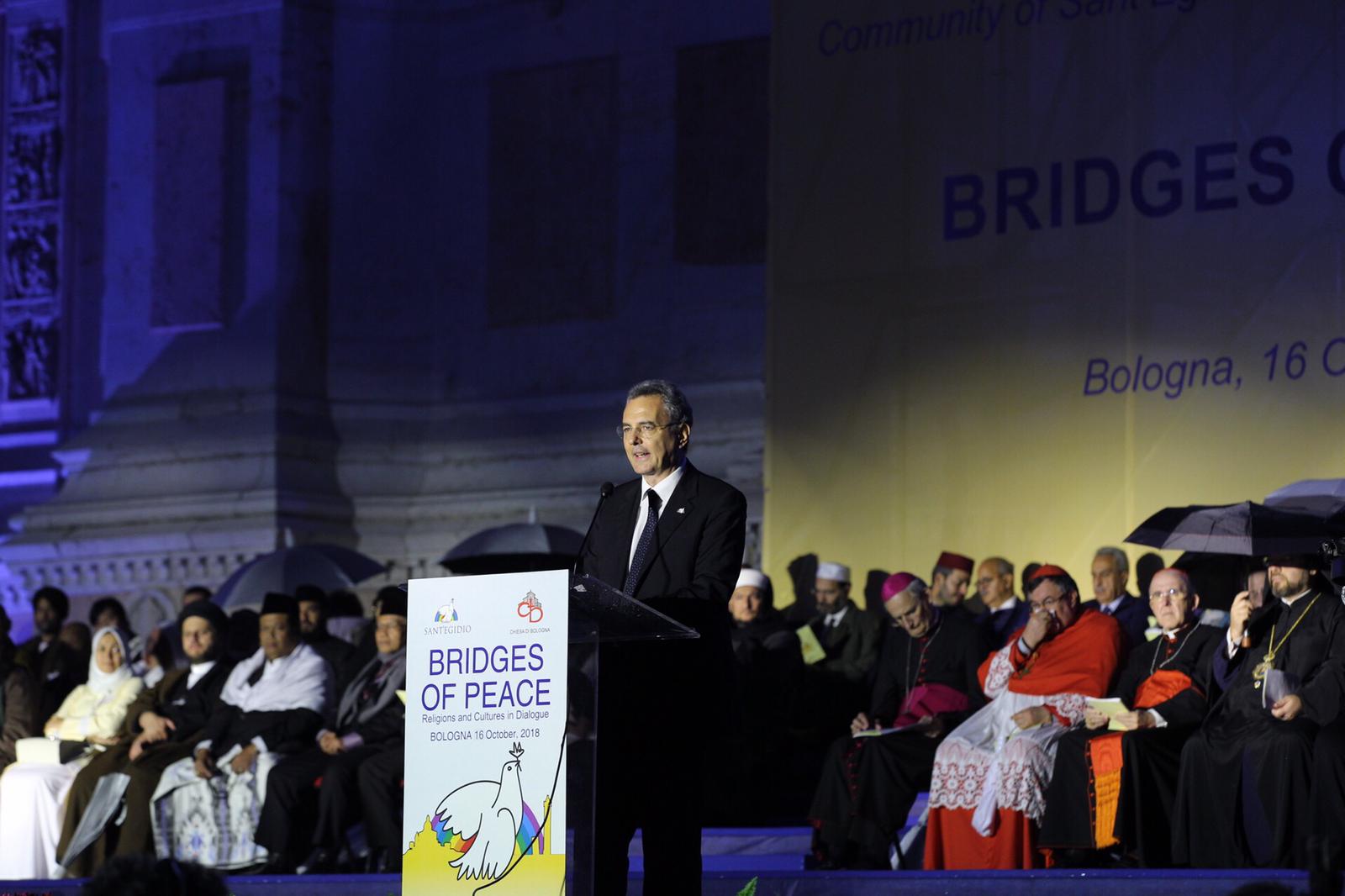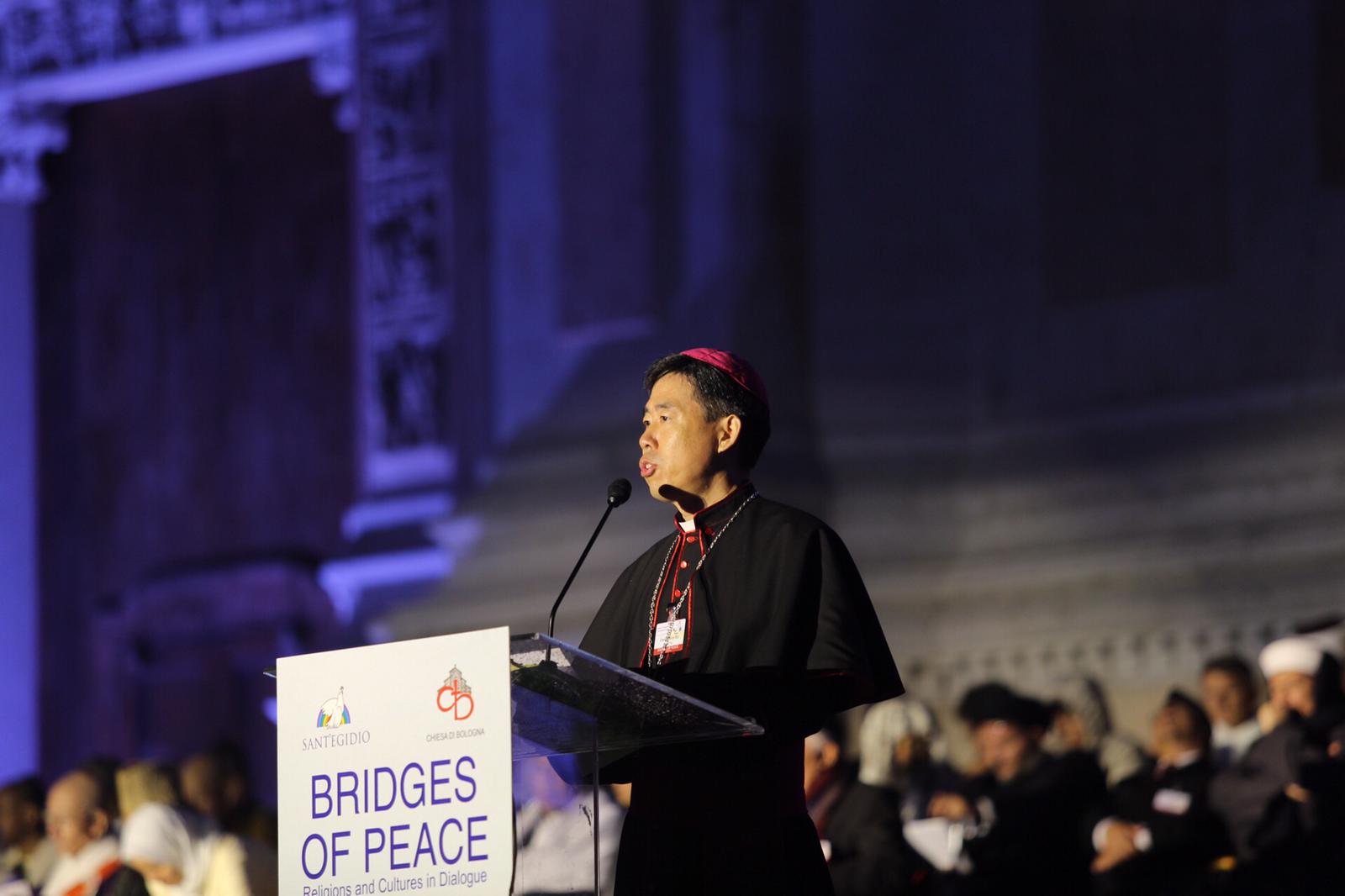It is a great honor and pleasure for me to be able to greet wholeheartedly all of you and to express an honest pleasure for participating in this truly significant Conference that was organized by the Community of Sant’Egidio. My gratitude goes to Secretary-General of the Community of Sant’Egidio Mr Kvartucci for coming to Sarajevo and asking me to participate in this Conference.
I am coming from Sarajevo, Bosnia and Herzegovina. I suppose that all of you know that my country suffered great temptation of interethnic war from 1992 to 1995.
In that unfortunate war, many material bridges were destroyed, and among them the famous Neretva Bridge in Mostar, but also the long-standing bridges of cohabitation and coexistence of the peoples in Bosnia and Herzegovina were annihilated.
Unfortunately, the relations between churches and religious communities in Bosnia are especially disturbed. During the war, hundreds of churches and other places of worship were burnt down and destroyed. Much of our cultural and religious heritage was devastated.
All these factors contributed to the catastrophic ruination of traditionally good inter-religious relations in Bosnia and Herzegovina.
It is quite paradoxical that this catastrophe took place 47 years after the establishment of “brotherhood and unity” of peoples in former Yugoslavia. Therefore, the Yugoslav society was a quasi-society, a great farce.
What is worse then devastated bridges and international relations is a fact that 23 years after the end of the war one might still see the modus vivendi of separation and insensitivity. The essence of that quasi-culture and quasi-civilization is best expressed in these words: “What do we need them for? We are self-sufficient!”, and that is unacceptable.
BRIDGES OF RECONCILIATION
Despite those negative facts, it is necessary for us Christians to remind ourselves of the words that Saint Paul addressed to Romans. Paul says to Romans, but also to all of us: “If it is possible, as far as it depends on you, live at peace with everyone” (Romans 12:18).
Therefore, all Christians are commanded to make peace with everyone, regardless of religious or other differences.
Reconciliation is a blessed and gracious process, and it must be a result of the reconciliation of humankind with God, and then with others.
History of religions shows and proves that humankind was always in need to make peace with God. However, religious sacrifices could not reconcile humans with God. Understanding this fact, many wise people of old, especially Roman and Greek philosophers, concluded that the only way of reconciliation with God, and thus the only way to save the world, was the incarnation of God himself. That is precisely what happened. Saint John Theologian expresses this fact in an excellent way while saying that “God did not send his Son into the world to condemn the world, but to save the world through him” (John 3:17).
Therefore, the first and true Bridge of Reconciliation is our Lord Jesus Christ. He was the one who showed us how to build bridges of reconciliation between brothers in the same faith, but also with those of different religious backgrounds.
Today it is our primary duty to think about and to speak of inter-religious bridges of reconciliation, especially in the context of modern relations of Christianity and Islam in Asia and Africa, but also in the Europe.
It is also very interesting, but very challenging too, to speak of the bridges of reconciliation between Islam and Judaism in the context of long confrontations in the Middle East.
Although it sometimes may seem like an utopia or a fiction, we should emphasize that the bridges of reconciliation are the only alternatives to unceasing struggles and confrontations, unending wars and consequences of those wars that are thousands and even millions of dead.
Another challenging issue is the process of building bridges of reconciliation in a small region such as Bosnia and Herzegovina. Some people in UN think and expect the reconciliation among nations in our small region to begin in churches and religious communities. Their expectation is justified because they know that peace and reconciliation are important parts of our doctrines. However, that is not correct approach. The society lives and works outside religious doctrines. Europe is the best example of such situation.
Our relations with God, world, and other humans are based on theological teaching that God is not only the Creator and Pantocrator, but also the Apsolute Good. If that is so, and it is, than one might ask: where is the problem? Where are peace and reconciliation? Where are the bridges of reconciliation?
Friar Drago Bojic writes as follows: “All religions like to claim that they are religions of peace, proving this by referring to their holy books and their teachings, but their practice refutes them because many wars have religious undertone”. He adds: “Peace between different religions and peacemaking as religious duty is not a rare subject of conversation in Bosnia and Herzegovina, but despite many religiously inspired peacemaking initiatives, the followers of different religions are still far apart and insensitive, even exclusive, towards each other, which eventually might deepen the conflict”.
Such situation in our small region begs the question: are our churches and religions truthful and credible interpreters of God’s will. While I think about this, I remember the words addressed by incarnated Son of God Jesus Christ to the members of Sinhedrion and Pharisees. I am afraid that those same words might relate to our own situation, for we know and teach a lot, but do not act accordingly.
There is one more reason why our small region is special and specific. That is the phenomenon of apotheosis of nations. This apotheosis of nations is an example of what Lord Jesus Christ said of the sons of covenant, i.e. that they are “setting aside the commands of God in order to observe their own traditions” (Mark 7:9). Therefore, the apotheosis of nations turns them back to their myths and mythologies, back to the old confrontations and conflicts, back to the discrimination of others on any basis. I will again quote Drago Bojic who claims that “the notion of faith in our context is often devaluated to the banality, to collectivistic religious and national value (to vulgar superstition – M. Krleza), against universal humane and moral values”.
Due to everything that was said, we must call for essential metamorphosis of everything and everyone. Metanoia is the only way to create preconditions for building of new bridges of reconciliation for us Christians (Orthodox, Catholic, and Protestant), but also for all religions in Bosnia and Herzegovina, Balkans, Europe, and the world.
To have good connections, relations, cooperation, and same goals, as Jonathan Moor says, is not the same as reconciliation. The reconciliation has no alternative in good connections, relations, and momentary cooperation, and even less in tolerance, because the very term tolerance implies coercing, and not reconciliation.
In the end, I wish this Conference to be successful, and I wish many new bridges of reconciliation between us and all over the world.
